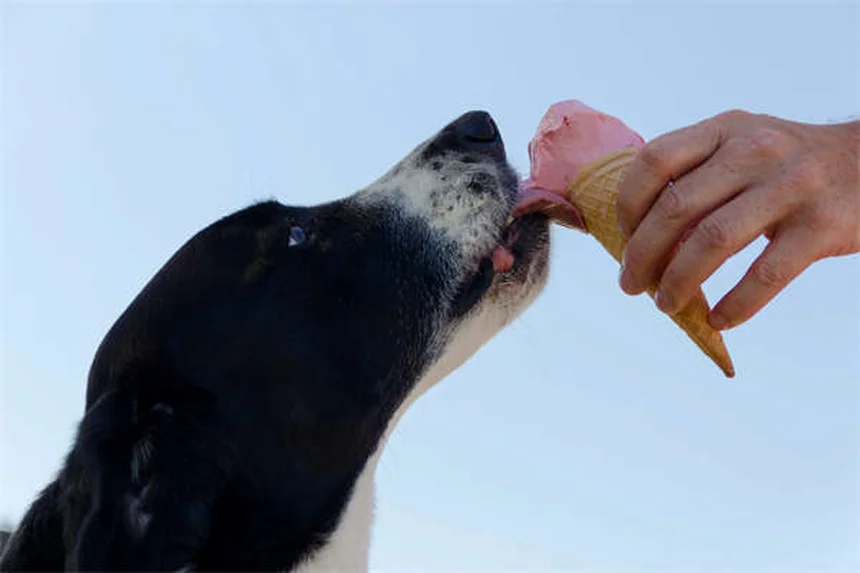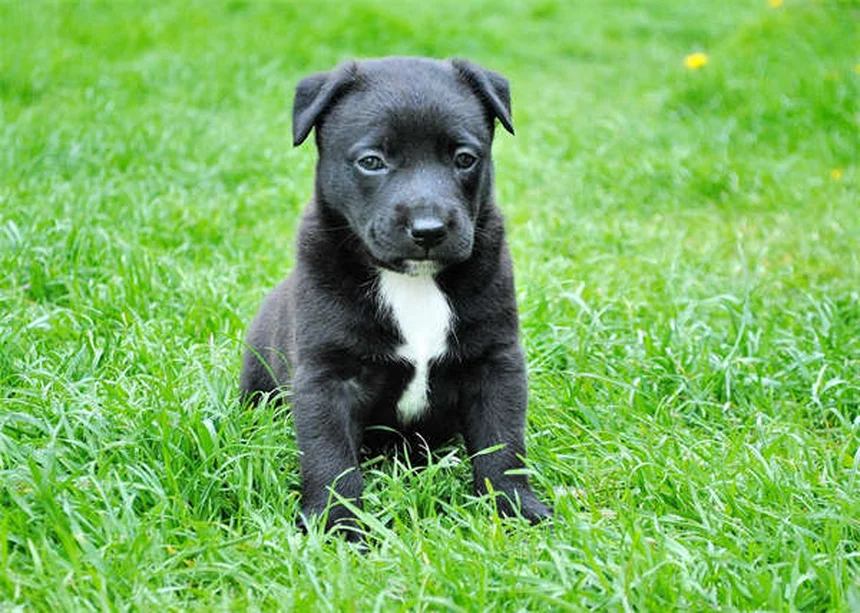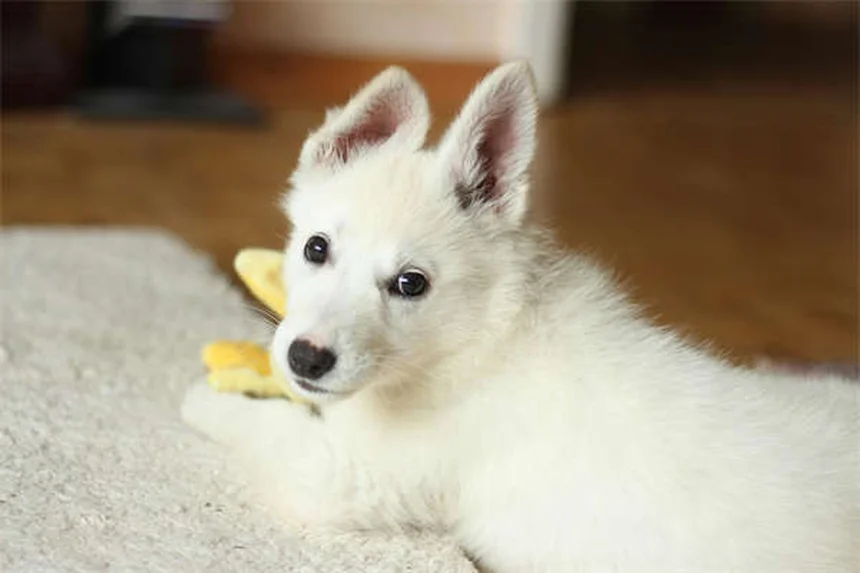Advertisement
Why does my dog have a runny nose? The answer is: it depends on your dog's age and symptoms! Puppies often get runny noses from birth defects or infections, while older dogs typically develop nasal discharge from dental issues or systemic diseases. I've seen hundreds of cases in my veterinary practice, and let me tell you - that drippy nose could mean anything from simple allergies to serious health concerns.Here's what you need to know: clear discharge alone usually isn't worrisome, but when you see colored mucus, breathing trouble, or lethargy, it's time to call your vet. The good news? Many causes are treatable once we identify the root problem. In this guide, I'll walk you through the most common reasons for dog runny nose and share my professional tips for keeping your pup's sniffer healthy!
E.g. :How to Choose the Perfect Dog Crate Size: Expert Guide for Pet Safety
- 1、Why Does My Dog Have a Runny Nose?
- 2、When Should You Worry About That Drippy Nose?
- 3、What's Really Causing That Runny Nose?
- 4、How Vets Solve the Mystery
- 5、Home Care Tips While You Wait
- 6、Treatment Options Based on Cause
- 7、Prevention Is Key
- 8、Beyond the Basics: More About Canine Nasal Health
- 9、The Emotional Side of Nasal Issues
- 10、Alternative Approaches Worth Trying
- 11、The Future of Canine Nasal Health
- 12、Your Dog's Nose Knows Best
- 13、FAQs
Why Does My Dog Have a Runny Nose?
Puppies vs. Senior Dogs: Different Causes
You know what's funny? Dogs can get runny noses just like we do! But here's the deal - the causes change as they age. Let me break it down for you:
| Age Group | Common Causes |
|---|---|
| Puppies & Young Dogs | Birth defects, infections, toxins |
| Adult & Senior Dogs | Dental problems, cancer, systemic diseases |
Ever wonder why your old buddy Fido suddenly has a drippy nose? It might be that bad tooth he's been hiding from you! I've seen cases where a simple dental check solved months of nasal issues.
When Should You Worry About That Drippy Nose?
Normal vs. Emergency Situations
A little clear discharge? No biggie. But when your pup shows these red flags, it's vet time:
- Breathing changes - like congestion or noisy breathing
- Discolored snot (yellow, green, or bloody)
- Extreme tiredness or not eating
- Coughing fits that make them gag
Here's a pro tip: Dogs don't sweat like we do. That clear discharge after playing in the sun? That's their version of sweating! Get them to shade and offer water pronto.
What's Really Causing That Runny Nose?
 Photos provided by pixabay
Photos provided by pixabay
Allergies: The Seasonal Sneezes
Did you know dogs can get hay fever too? Spring and fall are prime allergy seasons for our four-legged friends. Pollen, mold - you name it, they can react to it!
My neighbor's golden retriever? Total allergy case. We figured out he was sensitive to ragweed. Now they do weekly paw washes and use special wipes after walks. Problem solved!
Foreign Objects: Nose Full of Trouble
Dogs explore the world nose-first. Grass blades, seeds, even tiny wood chips can get inhaled. Ever seen a dog sneeze violently? That might be their way of saying "Help, something's stuck!"
How Vets Solve the Mystery
The Detective Work Begins
Your vet will play detective with:
- Detailed history questions
- Physical nose-to-tail exam
- Possible nasal swabs or scopes
Here's something cool - vets sometimes use tiny cameras to explore nasal passages! I watched one remove a pea-sized foxtail from a schnauzer's nose last summer. The relief was instant!
 Photos provided by pixabay
Photos provided by pixabay
Allergies: The Seasonal Sneezes
Basic blood work often doesn't reveal nasal issues. But guess what? Advanced imaging like CT scans can show problems plain X-rays miss. It's like comparing a flip phone to a smartphone!
Home Care Tips While You Wait
Simple Solutions You Can Try
Waiting for your vet appointment? Here's what works:
- Warm up canned food to boost smell (great for congested pups)
- Use a humidifier to loosen mucus
- Keep a symptom diary - note discharge color and timing
My favorite trick? Elevate the food bowl for dogs with nasal congestion. It helps them breathe easier while eating. Try it - you'll thank me later!
Treatment Options Based on Cause
Allergy Solutions That Work
For allergy sufferers, vets might recommend:
- Antihistamines (yes, like our allergy meds!)
- Special shampoos and wipes
- Allergy shots for severe cases
Remember that golden retriever I mentioned? After trying three different approaches, we found a combo that worked. Now he's sneeze-free!
 Photos provided by pixabay
Photos provided by pixabay
Allergies: The Seasonal Sneezes
Bad teeth can cause nasal issues? You bet! Tooth root abscesses are sneaky culprits. Your vet will likely:
- Take dental X-rays
- Prescribe antibiotics if infected
- Recommend extractions if needed
I'll never forget the 10-year-old beagle who came in for a runny nose. Turns out he needed two teeth pulled! After recovery? No more nasal discharge.
Prevention Is Key
Simple Steps to Avoid Problems
Want to keep your dog's nose happy? Try these:
- Regular dental checkups
- Allergy management if needed
- Avoiding extreme temperatures
Here's a fun fact: Dogs with short noses (like pugs) often need extra care. Their compact faces make them prone to nasal issues. Extra vigilance pays off!
Know Your Dog's Normal
The best prevention? Being observant. Notice what's normal for your dog so you'll spot changes fast. After all, nobody knows your pup like you do!
So next time you see that drippy nose, you'll be ready to take action. Your furry friend will thank you with wet kisses and happy tail wags!
Beyond the Basics: More About Canine Nasal Health
The Weather Connection You Never Considered
You think your dog's runny nose is just allergies? Think again! Weather changes affect dogs more than we realize. When the humidity drops suddenly, it dries out their nasal passages, causing irritation and discharge.
I remember my cousin's bulldog, Bruno. Every winter when the heater kicked on, his nose would run like a faucet. We started using a humidifier near his bed, and boom - problem solved! Who knew dry air could cause so much trouble?
Breed-Specific Considerations
Not all dog noses are created equal. Some breeds are nasal issue magnets:
- Brachycephalic breeds (pugs, bulldogs) - their squished faces mean narrow nasal passages
- Greyhounds - surprisingly prone to nasal tumors
- Dachshunds - often develop nasal mites
Ever wonder why your pug sounds like a broken vacuum cleaner? Those adorable wrinkles come with breathing challenges! Regular nose cleaning with soft wipes helps prevent irritation.
The Emotional Side of Nasal Issues
How Discomfort Affects Behavior
A dog with chronic nasal problems isn't just physically uncomfortable - it changes their whole personality! They might become irritable, withdrawn, or even aggressive when their nose bothers them.
Take my friend's terrier mix, Pepper. After weeks of nasal congestion, she stopped playing with her favorite squeaky toys. Turns out she couldn't smell them properly! Once we cleared up her sinus infection, her playful spirit returned.
The Human-Dog Bond Impact
Here's something touching - dogs rely on their noses to connect with us. When their sniffers don't work right, they miss out on:
- Recognizing your unique scent when you come home
- Enjoying mealtime aromas
- Picking up emotional cues from other dogs
Isn't it amazing how much we take their sense of smell for granted? Next time your dog greets you with a cold nose nudge, remember - that's their way of saying "I know you!"
Alternative Approaches Worth Trying
Natural Remedies That Actually Work
Before rushing to medication, consider these gentle options:
| Remedy | How It Helps | Best For |
|---|---|---|
| Saline nasal drops | Moistens dry nasal passages | Weather-related issues |
| Local honey | Builds pollen immunity | Seasonal allergies |
| Steam therapy | Loosens congestion | Cold-like symptoms |
My personal favorite? Chicken broth steam sessions. Just warm some low-sodium broth and let your dog inhale the vapors. It's like chicken soup for their soul - and nose!
When to Consider Acupuncture
You might laugh, but canine acupuncture works wonders for chronic nasal conditions. Certified veterinary acupuncturists target specific points to:
- Reduce inflammation
- Improve circulation
- Boost immune response
I was skeptical too, until I saw a shih tzu with year-round nasal congestion respond beautifully after just three sessions. Sometimes modern medicine needs an ancient partner!
The Future of Canine Nasal Health
Exciting New Research
Scientists are making breakthroughs in understanding dog noses. Did you know they're developing:
- Nasal probiotics to balance microbiome
- Smart collars that monitor nasal health
- DNA tests for allergy predisposition
Imagine getting an alert on your phone when your dog's nasal discharge changes color! The future is closer than you think - some vet schools already have prototype devices in testing.
How You Can Help Advance Science
Want to contribute to nasal health research? Many veterinary colleges need:
- Volunteer dogs for clinical trials
- Nasal swab samples from healthy pets
- Detailed health histories
Your pup could help discover the next big treatment! Just last month, a study using citizen science data identified three new allergy triggers in dogs. Pretty cool, right?
Your Dog's Nose Knows Best
Listening to What Their Nose Tells You
A dog's nose is their superpower - when it's not working right, their whole world changes. Pay attention to the subtle signs:
- Decreased interest in sniffing during walks
- Rubbing their face on furniture
- Changes in eating habits
Remember, you're your dog's advocate. If something seems off with their nose, trust your gut. After all, who knows your furry friend better than you?
Creating a Nose-Friendly Environment
Little changes at home can make a big difference:
- Use unscented cleaning products
- Keep air filters fresh
- Provide plenty of fresh water
Your dog's nose works overtime every day - the least we can do is make their environment comfortable! Now go give that wet nose a gentle boop from me.
E.g. :Dog Runny Nose (Nasal Discharge): Causes and Treatments
FAQs
Q: Can allergies cause a runny nose in dogs?
A: Absolutely! Just like humans, dogs can develop allergies that cause nasal discharge. I've treated countless pups with seasonal allergies - especially during spring and fall when pollen counts are high. The telltale signs? Clear watery discharge, sneezing, and sometimes itchy skin. What many owners don't realize is that food allergies can also contribute to nasal issues. My golden rule? If your dog's runny nose coincides with certain seasons or appears after diet changes, allergies might be the culprit. We typically recommend allergy testing and may suggest antihistamines or special diets to manage symptoms.
Q: When should I take my dog to the vet for a runny nose?
A: As an experienced vet, I always tell clients to watch for these red flags: colored discharge (yellow, green, or bloody), difficulty breathing, loss of appetite, or lethargy. Here's a real-life example from my practice - a Labrador came in with what the owner thought was just a minor cold. Turns out he had a nasal tumor that required immediate treatment. That's why I emphasize: when in doubt, get it checked out. Early detection can make all the difference, especially with serious conditions like cancer or infections. For puppies and senior dogs, I recommend being extra cautious as their immune systems are more vulnerable.
Q: Can dental problems really cause nasal discharge in dogs?
A: You'd be surprised how often dental issues lead to runny noses! I've seen many cases where infected tooth roots or oronasal fistulas (abnormal openings between mouth and nasal cavity) caused chronic nasal discharge. Here's how it works: infection from bad teeth can spread upward into nasal passages. The solution? Regular dental cleanings and prompt treatment of dental disease. Just last month, I treated a 7-year-old terrier whose persistent runny nose cleared up completely after we extracted two abscessed teeth. Dental health is nasal health in dogs - don't skip those annual cleanings!
Q: What home remedies can I try for my dog's runny nose?
A: For mild cases, I often suggest these safe home care tips: use a humidifier to loosen congestion, elevate food bowls to help breathing during meals, and warm up canned food to enhance smell (great for stuffy noses). However - and this is important - never give human cold medications as they can be toxic to dogs. One of my clients recently made this mistake with tragic results. Instead, focus on supportive care: keep your dog hydrated, ensure they're eating, and monitor closely. If symptoms persist beyond 24-48 hours or worsen, please seek veterinary care immediately.
Q: Are certain dog breeds more prone to runny noses?
A: Brachycephalic (short-nosed) breeds definitely have more nasal issues! As a vet, I see this constantly in pugs, bulldogs, and Boston terriers. Their compact facial structure makes them prone to nasal congestion and discharge. Other at-risk groups include hunting dogs (more likely to inhale foreign objects) and older small breeds (higher dental disease rates). My best advice? Know your dog's normal nasal habits. Some breeds naturally have more moisture than others. When you notice changes in the amount, color, or consistency of discharge, that's when to be concerned. Regular checkups are especially important for these susceptible breeds.







